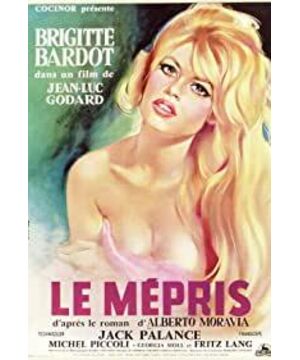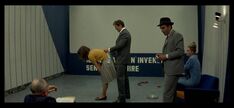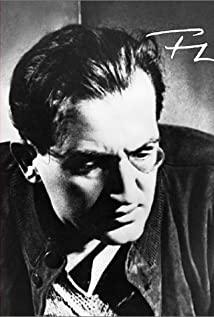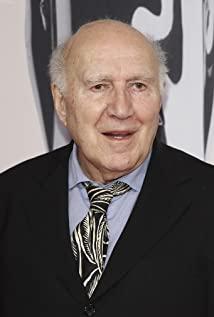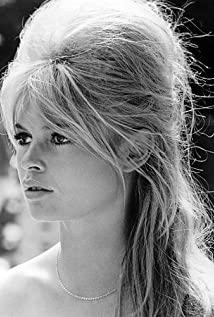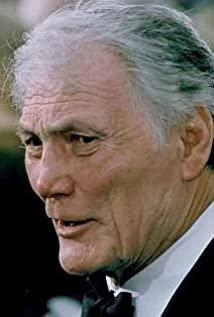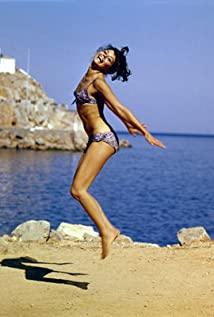Original address: http://www.qh505.com/blog/post/5122.html
Ulysses holds a sword in his hand and looks towards the sea ahead. After the Trojan War and the end of ten years of wandering at sea, he is about to return to his own country, and he is about to see his parting wife, and he is about to kill him with a sword. Kill those suitors. This is the homecoming of Ulysses, when the sound of "cameras" "quiet" came, Ulysses was just an actor, "Odyssey" was just a script, in the camera, the crew and the director Fever In front of Ritz Lang, the scene of going home is just a set, but when Bohr walks to the platform and extends his hand to say goodbye to Fritz Lang, going home becomes an intertext: "I want to Going back to Rome, ending my script, one has to end what is meant to end." Leaving, going home, at that moment, Bol, like Ulysses, faced an endless sea.
The sea is in front, this is the sea in Homer's history, this is the sea in the movie "Odyssey", this is the sea in the epic, this is also the sea in reality, is there really a home in the depths of the sea? Do you really have to wait for your wife? Is there really a killing in the sword light? Bohr once also faced this sea. At that time, he said: "Our joy immediately turns into tears, until we get close to the sea." It seems like a prophecy, why are there tears, why are there tears when we are close to the sea? Seems to be the Odyssey story transplanted to reality, Ulysses killed the suitors who proposed to his wife Penelope after returning home, and he shouldn't have tears of sorrow when the couple is reunited, but in this In the story, the controversy is: Did Ulysses enter the Trojan War because he couldn't bear his wife? In other words, Ulysses already felt that his wife was unfaithful, which was the opinion of American producer Prokosius, but in the later discussion, Fritz Lang believed that it was not his wife who betrayed Ulysses, Rather, she "contempts" Ulysses. Betrayal and contempt have become two explanations, and it is this different interpretation that makes this script go to two possible endings, and in reality, the love between Bol and his wife Camille is also contempt and betrayal to the sea of tears.
Intertextual stories, on camera and off camera. The woman walks slowly with hands in hand, next to the camera sliding on the track, and the voice-over appears," Andre Bazin said: "The film replaces a world that is more in tune with our desires, and "Contempt" is about this world The story.” The voice-over creates a distancing effect, after which the camera approaches the camera and turns to the camera, which clearly implies that the camera is aimed at reality, and the audience may be the actor. This is an intervention into reality, and the narrator quotes Bazin's words to interpret "Contempt", this multi-text intertextual story shows its layers: the film "Odyssey" constitutes the first layer of text, and the crew is working on it. The film "Odyssey" based on Homer's epic was filmed here. Around this film, American producer Prokosius, director Fritz Lang and screenwriter Bohr discussed and tried to adapt the script.
In this first text, there are opinions that everyone does not use, the most important thing is whether Ulysses' wife still loves him, and this also determines Ulysses' mentality of returning home, and killing the proposal. the real intention of the person. Whether it was his wife's contempt or betrayal, Ulysses finally took up the sword, and when the final ending appeared in the movie, he extended the discussion in the second layer of text, "Murder does not solve any problem" , which is a rejection of the first-level text, a conclusion that appears twice in the second-level text, once when Paul and his wife Camille returned to the apartment after some unpleasantness, and Camille, sitting in the bathtub, read A book that says, "We have to resist, but killing is not the solution." The second mention is when Camille and Prokosius leave the filming location in a speedboat, where Pohl and Fritz Lang discuss the When Lysis, mentioning that he finally picked up the sword and killed the suitor couldn't solve anything.
These two emphasises are actually an intertextual foreshadowing for the ending of the second layer of text. No matter whether Ulysses’ wife is contemptuous or unfaithful, in a word, Ulysses finally killed the suitor. And in Bohr's story, he might have killed like Ulysses because he took a gun with him when he went out, even though the gun was dropped on the boat and the assistant picked it up and gave it back to him , and when he was arguing with his wife Camille, walking from the platform to the bay until Camille was swimming naked, he actually had this gun on him all the time, and even if the argument might escalate, the irrational Bol would take it Take out that gun and face Camille. If he goes further, he will also point at Prokosius, who is ambiguous with Camille. Then, Bol becomes Ulysses in reality.
Director: Jean - Luc Godard Screenplay: Jean - Luc Godard / Alberto Moravia Starring: Brigitte Bardot / Michel Piccoli / Jack Palance / more Multiple Production Country/Region: France/Italy Release Date: 1963-10-29 Duration: 103 Minutes AKA: Contempt/ Contempt
However, he did not kill, and subjectively may lack this kind of irrational impulse, and arguing with Camille is more of a feeling of being despised for some unknown reason. In an objective sense, he also has no chance to kill with a gun, because after Camille swam, he fell asleep leaning on the rock, as if he had a dream, and when he woke up, it was a note left by Camille : She took the bullet out of the gun, she and Prokosius left here for Rome, and finally "take care" and "farewell". He didn't kill, and he wouldn't kill, because killing doesn't solve any problem, so in the end he didn't become Ulysses - even if he finally said goodbye to Fritz Lang and went to Rome, he didn't end up returning home The name and Camille reunited.
Maybe when Bol said goodbye, he didn't even know that Camille was actually dead. He died in a car accident. When Prokosius and Camille drove away in a luxury car, after filling up the gas at the gas station, they were killed by a car. A tanker collided, and both died - the luxury car got stuck in the middle of the truck, and the two died in their respective directions. An accident, an accident, not about killing, not about revenge, not even about contempt. Therefore, the second layer of text constructed by the stories of Bohr and Camille is almost escaping from the first layer of text, and in this sense of escape, it complicates the emotion of "contempt", which cannot be solved by killing, That is the conclusion emphasized twice: Killing can't solve any problem.
Contempt movie poster
How did complex contempt come about? Going back to the story of Bol and Camille, the night before, the naked Camille was still asking Bol, do you love me as a whole? From feet to ass, from breasts to nipples, from thighs to knees, Camille lay on the bed and asked one by one: "Do you like it?" And Bol repeated again and again: "I like it." This is a The night of true love, without any foreign factors, is only two people. However, there seems to be a hint that when Camille was naked, Boll next to him was wearing clothes and covering a quilt, a state where his body was covered, which actually formed a huge contrast with Camille's open body, that is to say , the two people are not synchronized in the sense of love.
It's just a hint that when Camille went to see her mother and accompany her to lunch the next morning, and Bol went to the set to discuss the adaptation with Prokosius, Camille went there too, that is, from their After the reunion was on the set, the estrangement between the two appeared. At first, Prokosius invited everyone to dinner. The car didn't seem to be able to do too many people. Pol suggested that Camille get in the car, and then take a taxi by himself, while the female assistant rides a bicycle. The three modes of transportation are different metaphors. Camille, who arrived early, waited for half an hour before seeing Bol arriving. She asked why it was so late. Bol said that he did not see the taxi in time. There was a car accident, but Camille was clearly upset, and it showed on his face. The camera flashed the scene when she first got in the car, which was a reflection of Camille's inner activity, that is to say, she began to breed the so-called "contempt" emotion.
Bol said he was going to the bathroom, but Camille saw him talking to his female assistant and making some ambiguous movements; after returning to the apartment, Camille told him that he didn't want to go to the Capri studio, Bol thought Don't understand why; after that Camille's mother called, Bol answered the phone and said Camille was out, Camille who heard the conversation was angry at Bol's lying, and Bol just wanted to test if the noon was really with his mother Together... Camille's mood changes are obvious, so Bol asked her several times what was going on, if it happened just now, Camille has been avoiding a positive answer. In the two people's apartment, the incident gradually escalated. It started with a difference of opinion, then it was an argument, and at the end Camille said to him, "I despise you, that's how I feel." This was the first mention of "contempt," and for Ball, the problem was, last night It's okay, it's okay to go out in the morning, why did everything change after I went to the set and met Prokosius?
When Camille said "contempt", it seems to be a kind of disdain, a kind of contempt, and a top-down look down. So, what happened from "you love me as a whole" to "contempt for you"? It all happened when Pol approached the American producer, Proctor, and after agreeing to adapt the script, Proctor wrote him a check, so one reading of contempt was about money. When Bol and Camille quarreled, they also talked about money. Camille said that when he used to write detective novels, the money was not much, but life was not bad. But after getting to know the filmmaker, it seems like things have changed, and Ball keeps explaining, it's for a better life, it's for buying an apartment, it's for Camille, so it's a disagreement; on this day , Camille seems to have seen Bol's ambiguous actions and heard his lies. Is it true that none of this has happened before? This is a betrayal of emotions, that is to say, the body that was covered up that night had A reason for interpretation, and this is also the reason for Camille's contempt; the third difference is about the understanding of love, Camille needs thorough, pure love, but whether it is an apartment or a creation, Ball's love is actually Already established in the material sense, even Camille has become one of the material, and in an inner psychological activity, Pohl said, "If she dies, I also lose my love." Killing doesn't solve the problem", and Camille's inner thoughts were: "It happened so fast, and he died in his arms without knowing what happened." - In Camille's view, this contempt started at the beginning It's just an expression of emotion, and I don't even know if contempt means no love, even when the two began to quarrel, Camille said: "I don't love you anymore, there's nothing to explain, it's over. It didn't really turn into hatred. After all the unpleasantness and estrangement in Capri, Camille was still naked facing Bol on the platform that was lit by the sun. At the bay, like when he faced Bol that night, Camille stripped naked and went into the sea naked in Bol's presence.
Contempt, just contempt, but the horror of contempt is indifference, estrangement, disagreement, and finally even real hatred. The "take care" and "farewell" in that sentence were messages from Camille to Bol, but she was not really considered unfaithful like Ulysses' wife in the process of her walking towards Prokosius. , wearing sunglasses, language barrier is a metaphor that she and Prokosius can't really be together, and dying in a car accident in the end is a state of separation. But both Camille's contempt and eventual death seem to have something to do with Prokosius, the man labelled "American Producer," leading to a third layer of text.
The movie "Odyssey" is being filmed, and the story of Bol and Camille takes place in front of the camera, and when the camera appears in front of the camera, it means that there is a layer of text beyond "Contempt", that is, the part of the film called "Contempt". Out of the reality, why did Bol take over the work of adapting the script, probably because the money was not enough, and he must have adapted the script to serve Prokosius, that is to say, the Italian or European films represented by Bol, and the Representing American capital, this is a metaphor for the film era: under capital, where should the film go? Prokosius, who represents American capital, is actually a Hollywood production model, so Bol was talking to Fritz that he was a "dictator," and Fritz said, like Ulysses, is simple, smart and Strong man, so the pure contempt for Ball represented by Camille is actually the contempt for the Hollywood business model in art films, and in the end Ball finally decided to return to Rome to end the script adaptation, like a creative sense of " Go home", but when Camille was killed by an objective car accident, does contempt also represent a kind of confusion that can't find a way out?
When they were lying in bed that night "loving my whole being", the filters of light were red and blue, and natural light at the end, which seemed to be a metaphor for the colors of the French and American flags, and the movie mirrored in such a In the end, should we move towards Hollywood-style commercial films, or continue to stick to home-style art films? In fact, the answer may be revealed in the third layer of text. Why did Godard point the camera at the audience? Why does the alienation effect occur, because what he wants to create is the value and meaning of the existence of the camera, Hollywood's dream construction is to hide the camera, and let the camera aim at the camera, bring the camera to the plot, and even put "Contempt" directly on the To be one of the texts in the movie is to show every love-worthy place like Camille. To be exposed is the truth and the pure, and this is also a real time for Hollywood, for money, and for the "lie market". "Contempt".
Ulysses holds a sword in his hand and looks towards the sea ahead. After the Trojan War and the end of ten years of wandering at sea, he is about to return to his own country, and he is about to see his parting wife, and he is about to kill him with a sword. Kill those suitors. This is the homecoming of Ulysses, when the sound of "cameras" "quiet" came, Ulysses was just an actor, "Odyssey" was just a script, in the camera, the crew and the director Fever In front of Ritz Lang, the scene of going home is just a set, but when Bohr walks to the platform and extends his hand to say goodbye to Fritz Lang, going home becomes an intertext: "I want to Going back to Rome, ending my script, one has to end what is meant to end." Leaving, going home, at that moment, Bol, like Ulysses, faced an endless sea.
The sea is in front, this is the sea in Homer's history, this is the sea in the movie "Odyssey", this is the sea in the epic, this is also the sea in reality, is there really a home in the depths of the sea? Do you really have to wait for your wife? Is there really a killing in the sword light? Bohr once also faced this sea. At that time, he said: "Our joy immediately turns into tears, until we get close to the sea." It seems like a prophecy, why are there tears, why are there tears when we are close to the sea? Seems to be the Odyssey story transplanted to reality, Ulysses killed the suitors who proposed to his wife Penelope after returning home, and he shouldn't have tears of sorrow when the couple is reunited, but in this In the story, the controversy is: Did Ulysses enter the Trojan War because he couldn't bear his wife? In other words, Ulysses already felt that his wife was unfaithful, which was the opinion of American producer Prokosius, but in the later discussion, Fritz Lang believed that it was not his wife who betrayed Ulysses, Rather, she "contempts" Ulysses. Betrayal and contempt have become two explanations, and it is this different interpretation that makes this script go to two possible endings, and in reality, the love between Bol and his wife Camille is also contempt and betrayal to the sea of tears.
Intertextual stories, on camera and off camera. The woman walks slowly with hands in hand, next to the camera sliding on the track, and the voice-over appears," Andre Bazin said: "The film replaces a world that is more in tune with our desires, and "Contempt" is about this world The story.” The voice-over creates a distancing effect, after which the camera approaches the camera and turns to the camera, which clearly implies that the camera is aimed at reality, and the audience may be the actor. This is an intervention into reality, and the narrator quotes Bazin's words to interpret "Contempt", this multi-text intertextual story shows its layers: the film "Odyssey" constitutes the first layer of text, and the crew is working on it. The film "Odyssey" based on Homer's epic was filmed here. Around this film, American producer Prokosius, director Fritz Lang and screenwriter Bohr discussed and tried to adapt the script.
In this first text, there are opinions that everyone does not use, the most important thing is whether Ulysses' wife still loves him, and this also determines Ulysses' mentality of returning home, and killing the proposal. the real intention of the person. Whether it was his wife's contempt or betrayal, Ulysses finally took up the sword, and when the final ending appeared in the movie, he extended the discussion in the second layer of text, "Murder does not solve any problem" , which is a rejection of the first-level text, a conclusion that appears twice in the second-level text, once when Paul and his wife Camille returned to the apartment after some unpleasantness, and Camille, sitting in the bathtub, read A book that says, "We have to resist, but killing is not the solution." The second mention is when Camille and Prokosius leave the filming location in a speedboat, where Pohl and Fritz Lang discuss the When Lysis, mentioning that he finally picked up the sword and killed the suitor couldn't solve anything.
These two emphasises are actually an intertextual foreshadowing for the ending of the second layer of text. No matter whether Ulysses’ wife is contemptuous or unfaithful, in a word, Ulysses finally killed the suitor. And in Bohr's story, he might have killed like Ulysses because he took a gun with him when he went out, even though the gun was dropped on the boat and the assistant picked it up and gave it back to him , and when he was arguing with his wife Camille, walking from the platform to the bay until Camille was swimming naked, he actually had this gun on him all the time, and even if the argument might escalate, the irrational Bol would take it Take out that gun and face Camille. If he goes further, he will also point at Prokosius, who is ambiguous with Camille. Then, Bol becomes Ulysses in reality.
However, he did not kill, and subjectively may lack this kind of irrational impulse, and arguing with Camille is more of a feeling of being despised for some unknown reason. In an objective sense, he also has no chance to kill with a gun, because after Camille swam, he fell asleep leaning on the rock, as if he had a dream, and when he woke up, it was a note left by Camille : She took the bullet out of the gun, she and Prokosius left here for Rome, and finally "take care" and "farewell". He didn't kill, and he wouldn't kill, because killing doesn't solve any problem, so in the end he didn't become Ulysses - even if he finally said goodbye to Fritz Lang and went to Rome, he didn't end up returning home The name and Camille reunited.
Maybe when Bol said goodbye, he didn't even know that Camille was actually dead. He died in a car accident. When Prokosius and Camille drove away in a luxury car, after filling up the gas at the gas station, they were killed by a car. A tanker collided, and both died - the luxury car got stuck in the middle of the truck, and the two died in their respective directions. An accident, an accident, not about killing, not about revenge, not even about contempt. Therefore, the second layer of text constructed by the stories of Bohr and Camille is almost escaping from the first layer of text, and in this sense of escape, it complicates the emotion of "contempt", which cannot be solved by killing, That is the conclusion emphasized twice: Killing can't solve any problem.
How did complex contempt come about? Going back to the story of Bol and Camille, the night before, the naked Camille was still asking Bol, do you love me as a whole? From feet to ass, from breasts to nipples, from thighs to knees, Camille lay on the bed and asked one by one: "Do you like it?" And Bol repeated again and again: "I like it." This is a The night of true love, without any foreign factors, is only two people. However, there seems to be a hint that when Camille was naked, Boll next to him was wearing clothes and covering a quilt, a state where his body was covered, which actually formed a huge contrast with Camille's open body, that is to say , the two people are not synchronized in the sense of love.
It's just a hint that when Camille went to see her mother and accompany her to lunch the next morning, and Bol went to the set to discuss the adaptation with Prokosius, Camille went there too, that is, from their After the reunion was on the set, the estrangement between the two appeared. At first, Prokosius invited everyone to dinner. The car didn't seem to be able to do too many people. Pol suggested that Camille get in the car, and then take a taxi by himself, while the female assistant rides a bicycle. The three modes of transportation are different metaphors. Camille, who arrived early, waited for half an hour before seeing Bol arriving. She asked why it was so late. Bol said that he did not see the taxi in time. There was a car accident, but Camille was clearly upset, and it showed on his face. The camera flashed the scene when she first got in the car, which was a reflection of Camille's inner activity, that is to say, she began to breed the so-called "contempt" emotion.
Bol said he was going to the bathroom, but Camille saw him talking to his female assistant and making some ambiguous movements; after returning to the apartment, Camille told him that he didn't want to go to the Capri studio, Bol thought Don't understand why; after that Camille's mother called, Bol answered the phone and said Camille was out, Camille who heard the conversation was angry at Bol's lying, and Bol just wanted to test if the noon was really with his mother Together... Camille's mood changes are obvious, so Bol asked her several times what was going on, if it happened just now, Camille has been avoiding a positive answer. In the two people's apartment, the incident gradually escalated. It started with a difference of opinion, then it was an argument, and at the end Camille said to him, "I despise you, that's how I feel." This was the first mention of "contempt," and for Ball, the problem was, last night It's okay, it's okay to go out in the morning, why did everything change after I went to the set and met Prokosius?
When Camille said "contempt", it seems to be a kind of disdain, a kind of contempt, and a top-down look down. So, what happened from "you love me as a whole" to "contempt for you"? It all happened when Pol approached the American producer, Proctor, and after agreeing to adapt the script, Proctor wrote him a check, so one reading of contempt was about money. When Bol and Camille quarreled, they also talked about money. Camille said that when he used to write detective novels, the money was not much, but life was not bad. But after getting to know the filmmaker, it seems like things have changed, and Ball keeps explaining, it's for a better life, it's for buying an apartment, it's for Camille, so it's a disagreement; on this day , Camille seems to have seen Bol's ambiguous actions and heard his lies. Is it true that none of this has happened before? This is a betrayal of emotions, that is to say, the body that was covered up that night had A reason for interpretation, and this is also the reason for Camille's contempt; the third difference is about the understanding of love, Camille needs thorough, pure love, but whether it is an apartment or a creation, Ball's love is actually Already established in the material sense, even Camille has become one of the material, and in an inner psychological activity, Pohl said, "If she dies, I also lose my love." Killing doesn't solve the problem", and Camille's inner thoughts were: "It happened so fast, and he died in his arms without knowing what happened." - In Camille's view, this contempt started at the beginning It's just an expression of emotion, and I don't even know if contempt means no love, even when the two began to quarrel, Camille said: "I don't love you anymore, there's nothing to explain, it's over. It didn't really turn into hatred. After all the unpleasantness and estrangement in Capri, Camille was still naked facing Bol on the platform that was lit by the sun. At the bay, like when he faced Bol that night, Camille stripped naked and went into the sea naked in Bol's presence.
Contempt, just contempt, but the horror of contempt is indifference, estrangement, disagreement, and finally even real hatred. The "take care" and "farewell" in that sentence were messages from Camille to Bol, but she was not really considered unfaithful like Ulysses' wife in the process of her walking towards Prokosius. , wearing sunglasses, language barrier is a metaphor that she and Prokosius can't really be together, and dying in a car accident in the end is a state of separation. But both Camille's contempt and eventual death seem to have something to do with Prokosius, the man labelled "American Producer," leading to a third layer of text.
The movie "Odyssey" is being filmed, and the story of Bol and Camille takes place in front of the camera, and when the camera appears in front of the camera, it means that there is a layer of text beyond "Contempt", that is, the part of the film called "Contempt". Out of the reality, why did Bol take over the work of adapting the script, probably because the money was not enough, and he must have adapted the script to serve Prokosius, that is to say, the Italian or European films represented by Bol, and the Representing American capital, this is a metaphor for the film era: under capital, where should the film go? Prokosius, who represents American capital, is actually a Hollywood production model, so Bol was talking to Fritz that he was a "dictator," and Fritz said, like Ulysses, is simple, smart and Strong man, so the pure contempt for Ball represented by Camille is actually the contempt for the Hollywood business model in art films, and in the end Ball finally decided to return to Rome to end the script adaptation, like a creative sense of " Go home", but when Camille was killed by an objective car accident, does contempt also represent a kind of confusion that can't find a way out?
When they were lying in bed that night "loving my whole being", the filters of light were red and blue, and natural light at the end, which seemed to be a metaphor for the colors of the French and American flags, and the movie mirrored in such a In the end, should we move towards Hollywood-style commercial films, or continue to stick to home-style art films? In fact, the answer may be revealed in the third layer of text. Why did Godard point the camera at the audience? Why does the alienation effect occur, because what he wants to create is the value and meaning of the existence of the camera, Hollywood's dream construction is to hide the camera, and let the camera aim at the camera, bring the camera to the plot, and even put "Contempt" directly on the To be one of the texts in the movie is to show every love-worthy place like Camille. To be exposed is the truth and the pure, and this is also a real time for Hollywood, for money, and for the "lie market". "Contempt".
View more about Contempt reviews


